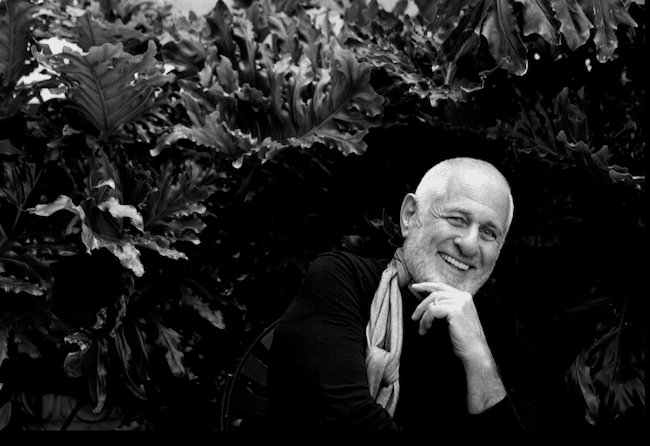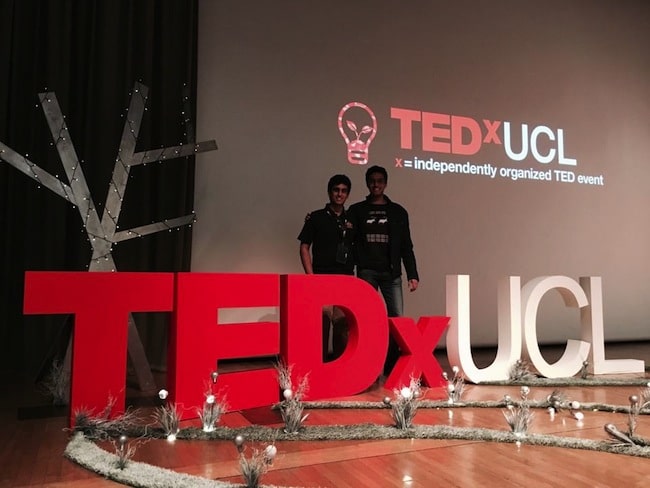How to Run a TEDx Event
Ideas have always been pivotal to the success of an event: the exciting visions brought to life by speakers but also the inspired thinking that goes into the event planning itself.
In recent years, TED Talks and TEDx events have revolutionised events and conferences because they put the emphasis firmly on the ideas. It may sound simple but in order to achieve this, the event planning and production has to as inspired as the presentations. And that’s quite some ask.
Many people that end up organising TEDx events do so because they genuinely want to make a difference and give a platform to ideas and stories that can inspire change in their community. This makes the execution of the event even more crucial.
In this article, we provide advice on how to run a TEDx event so that it has the best chance of achieving genuine real-world impact. And don’t worry if you’re not planning to run a TEDx event, as an event planner there’s still plenty to learn from this approach.
History of TED
TED, an acronym for Technology, Entertainment, Design, all began with one event back in 1984. Designer and cartographer Richard Saul Wurman conceived a conference that would explore the convergence of those three fields. With the help of Harry Marks, TED was born. That first event featured demos of the compact disc and the e-book, but wasn’t a runaway success. In fact, it wasn’t until 1990 that the TED conferences became an annual occurrence.

Richard Saul Wurman by Melissa Mahoney. Attr. Rswurman via Wikimedia Commons
Over the years, the TED conferences developed in numerous ways, gathering momentum and an ever-expanding audience along the way. The creation of TED.com in 2006 meant that the TED talks were available to watch online for free. No longer did you have to be invited to a conference that cost $4400 to attend – people across the globe could now access hundreds of inspirational talks, each one laid out by a speaker in 18 electrifying minutes. They could watch the likes of Bill Gates, Al Gore, Richard Dawkins, Bill Clinton and David Byrne flesh out ideas on science and culture. The TED YouTube channel now has over 500 million views.
In 2009, TED started to license its brand, meaning that anyone around the world could stage their own ‘TEDx’ event.
What is a TEDx Event?
TEDx are local, independently-organised events licensed by TED. They aim to bring people together under the TED mission statement of “ideas worth spreading.” Although there are rules and guidelines to follow, including a requirement to screen previously recorded TED Talks, event organisers have free rein to create a unique TED-like event. With over 15000 TEDx events already held, it has proved to be an immensely popular move.
As a TEDx organiser you can choose the theme, the speakers, the venue and curate the content you want in order to start conversations and generate new ideas that will inspire your community. The emphasis is often on giving a platform to those who don’t have one, but have inspirational stories and ideas to share.
The TEDx Format
The TEDx events often follow a similar basic format although there are a range of different event types with their own unique formats. When you apply for a license to organise a TEDx event, you’ll be asked to choose an event type. These include standard, University, Youth, Library and more. For the majority of TEDx events, you will:
- screen a selection of TED Talks
- feature a number of live TED-style Talks from speakers
Many organisers will look to achieve a 70:30 mix of live speakers to TED videos. You will need to curate relevant live videos but your focus should be on finding the very best speakers to deliver talks, demonstrations and performances that will inspire and spark debate.
What are my responsibilities as a TEDx organiser?
Being a TEDx organiser is not easy; there is a lot of work involved. It requires time and dedication. You will need to select a theme, find interesting speakers as well as an interesting audience, choose a venue and ensure the event runs smoothly from start to finish.
Here is a summary of just some of your key responsibilities:
Create a TED-like experience – This is all about capturing the spirit and quality of TED. You need to demonstrate your dedication to big ideas and compelling storytelling and aim to inspire your community with ideas that can change perspectives. You also need to champion the TEDx brand and cause.
Excite & delight your audience – Engagement is key with TEDx events. You need your guests to be wowed and feel like they’re experiencing something significant. Think of your audience’s needs every step of the way.
Effectively Lead & manage your team – Behind your event will be a dedicated and highly-qualified team of volunteers – it is your job to find them and then get the most out of them on the day. Read more on managing volunteers.
Follow rules & guidelines – Compliance with TED’s rules is essential so study up and make full use of their comprehensive online resources.
It may be hard work being a TEDx organisers but the rewards are great. When you witness people responding to an original idea as it takes shape in front of them and then feel the excitement build as they debate it later, you will know that it’s all been worth it.
Organising a TEDx Event
Choosing a TEDx Venue
Choosing a venue for your TEDx event is vitally important. You want to choose a space that suits the size of your audience, compliments the theme and event type as well as making sense for your community.
Size
Unless you have attended a flagship TED Conference, you are limited to running an event of less than 100 people. If you do attend a TED Conference and hold a TEDx license, then you are able to host a much bigger event but remember that creating an intimate environment will help with engagement. Choosing a venue that is too big will make it difficult for your audience to connect with the presenters.
Type
When looking for a venue, you want to think about audience engagement as your priority. TED recommends a theatre space that is wide rather than deep, so that the audience members are as close to the stage as possible. This sense of intimacy should help create a connection between the speakers and the audience. Theatres like our Logan Hall work well, providing great views of the stage for everyone.
Location
Your venue needs to be easy to get to, especially by public transport. It should also make sense for your community.
Facilities
There are some basic facilities that you will need. A stage for the host and live speakers; ideally a green room for speakers too. You will also need to ensure the stage is professionally setup and looks appealing.
Technology
Technology is crucial to your TEDx event. You need everything to run seamlessly and without any technical glitches. The venue will need state of the art equipment that will allow you to screen videos, present slides and any other visual aids as well as having professional lighting and AV. You will need someone with experience to handle the technical side of the production, ideally an in-house AV technician.
Another important aspect of the TEDx talks is that you should seize the opportunity to record the talks to share with the wider TED network. The quality of the video production needs to be high so that you can capture the speakers and give them the best opportunity to maximise the exposure of their ideas by getting them featured on TED.com. High quality videos can be a good way of sealing the deal with prospective speakers too.
Breakout and Social Spaces
You want to create an atmosphere that encourages conversation and debate following the talks. Make sure there is a dedicated space outside of the main event venue for this to take place. You will want to provide food and drink too in this breakout space to help people relax and get the conversations flowing. Entertainment is also a part of the whole TEDx experience so consider engaging local artists and musicians to add to the atmosphere.
Budgeting for a TEDx Event
It’s important to point out that TEDx organisers cannot make money from their events: any left over money needs to be put back into organising future TEDx events. As a TEDx organiser, however, you are in a position to set your own budget and handle all of the financial aspects of your event With this freedom comes responsibility. You will need to plan your budget in advance and keep tabs on all expenses. It makes sense to over-estimate the costs so you can make sure that you come in under budget. You will need to budget for the venue hire, catering, and any extras involved in making both the audience and speakers get the most out of the event. It is worth highlighting that it is highly unusual to pay speakers for their time.
Many organisers rely on donations and sponsorship to run their TEDx event. You can ask relevant sponsors to provide you with items and services for free in exchange for promotion. Be selective though – the sponsors should resonate with the audience and your community. TEDx events do provide great exposure for sponsors and through collaboration can really enhance your event.
Making an Impact with your TEDx Event
The ultimate aim of any TED event is the sharing of ideas and for those ideas to go on to have real world impact. In order to do this, you need to create an environment that inspires people and allows free-flowing discussion. By encouraging conversations and networking at your event, collaborations and relationships can form that will take the ideas to the next level and start new initiatives. The following section looks at the steps you can take to help facilitate this and ensure your event makes a genuine impact.
Marketing Your TEDx Event
Despite the recognition and prestige associated with TED, it’s vitally important to market your event and maximise its exposure.
Theme
Having a theme for your TEDx event, even if it is vague, can help with the marketing process. Which community are you targeting? Who do you want to attend? What speakers do you have in mind? Find a unifying but flexible theme that will tie it together.
Website & Social Media
You should create a basic website that contains all of the essential information about your event. As well as a website you should create social media accounts on the platforms that are most relevant to your community. You can use the website to link out to the social accounts.
When it comes to social media, Facebook and Twitter are both good options as they allow you to quickly and effectively reach the people that matter. It’s important to engage with your audience on these platforms rather than just pushing out details of your event and hoping they respond. You can also use social media to ask for recommendations on everything from speakers to venues.
It is important that you are connected to your community. Attend other local events, network with key figures and use any existing contacts to grow awareness and interest in your event. You should also ask confirmed speakers and sponsors to leverage their own networks, both online and offline, to spread the word about your event.
Once the event is over, you should still utilise your website and social media channels to carry on the conversation, share images and videos and any supporting information.
TEDx Speakers
Your event needs exceptional speakers. They don’t need to be experienced public speakers but their ideas and stories do need to be amazing. You should focus on the speaker’s ideas rather than their reputation or experience and work with them closely on the presentation side of things.
With their local emphasis, TEDx events provide you with the perfect opportunity to give a platform to inspiring local voices. The TED philosophy, according to Lara Stein, the Founder and Director of TEDx, can be summarised in one sentence, “it’s about simplified, authentic storytelling.” Seize your chance to shine a light on those people in your community that have a unique story to tell.
Curating Speakers
You want a mix of speakers covering a range of topics and types of presentation. Between 4 and 8 speakers is recommended for a TEDx talk, with one or two in reserve should someone pull out.
Preparing Speakers
Delivering a compelling TED-style talk is a challenge, especially for someone that is not used to public speaking. You therefore have a vital role to play in preparing your speakers so that their talks will have maximum impact. For those less experienced speakers, you should work closely with them and provide training.
Help them structure their talk, provide tips and constructive feedback. You should also make sure that they run through their talk in full with you a few times over with their visuals too. You will want to start this process well in advance of your event so that they are up to speed – two weeks minimum is recommended.
Speakers need to pay particular attention to timing. Talks need to be over five minutes long but not exceed 18 minutes. On the day, give the speakers clear pre-agreed signals to help them stick to their timings.
Audience
The audience is super important to a TEDx talk – after all, these are the people that will engage with the presentations, begin conversations, debate, and hopefully push forward new ideas in the wider community.
You should therefore devote time to selecting the right mix of attendees. It will pay dividends if you are selective, with invitees feeling like they have been hand-picked and have a key role to play.
Scheduling
Setting a Date
When choosing a date for your TEDx conference, triple check that the date doesn’t clash with any other events, especially those popular in your community.
Mohit Pawar in his blog suggests giving yourself 90 days to put together a show after you’ve secured a license from TED, which equates to around 100 days from the date you apply.
The Day of the Event
You have to think about how many sessions you want in the day and how long they should be. Two or three sessions of between an hour and an hour and a half is a good starting point when it comes to scheduling. Once you have decided on the number of sessions and the number of presentations, both live and video, you should consider the flow of the day and how each talk works together. Michael Weitz, who coaches speakers for TED, recommends thinking carefully about the programming of speakers and having “a good speaker starting the event, the best speaker closing the event, and the rest sprinkled throughout.”
Allow registration to happen an hour before the first talk and start around 10am. One of the most important things when planning your day is to schedule in generous breaks. Providing ample time for attendees to network with other attendees and speakers is key to the overall success of the event.
Once you have a well-organised and carefully planned schedule, be sure to communicate it with everyone involved and stick to it.
Entertainment and Extras
As a creative event, you may want to consider organising entertainment and interactive exhibitions to further enhance the event. Keep to the theme of ideas worth spreading and get creative. You could include installations and exhibitions by local artists, performance by musicians, demonstrations of immersive technology. As an organiser you have the opportunity to really make your event standout.
Tips for Running a TEDx Event
Do a Test Run – try and run through as much of the event as possible prior to the day. This gives you the opportunity to iron out any creases.
Make sure that the live presentations are free from a commercial, religious or political agenda.
Have an after party to continue the conversations and build on the momentum of your event
Volunteer with an established TEDx and learn as much as you can about the experience before starting your own.
Celebrate the local community by involving local artists, musicians, and relevant businesses in the day.
See the venue or better still attend an event there to give you an idea of how your event could be.
20 Bedford Way
20 Bedford Way recently hosted the TEDx vs UCL, a University TEDx event at Logan Hall. It was a great success with our flagship theatre venue offering excellent sightlines for an audience of 900 people and with professional AV helping create that intimate atmosphere. If you are interested in holding an event at our Bloomsbury event venue contact us on 020 7612 6143 or email us.
Here is a fantastic talk from Naqi Rizvi recorded at the Logan Hall event:

Image by Ayush Singh – via FourSquare
Other Resources
How to Organise a Local TedX Event




